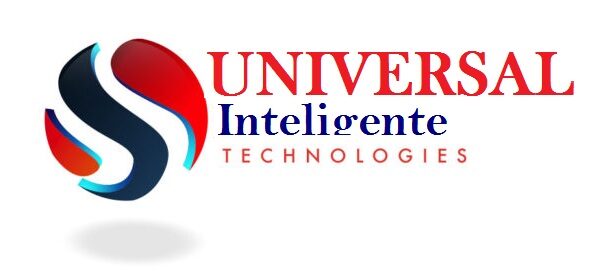Social impact startups balance mission and money. They must prove outcomes to donors and regulators while running lean operations that serve communities reliably. In 2025, analytics gives founders a way to connect purpose with performance, turning field observations and platform logs into decisions that scale impact without losing trust.
Why Analytics Matters for Mission‑Led Organisations
Every pound spent should move a measurable needle: fewer missed appointments, higher classroom attendance or faster access to clean water. Analytics translates these goals into leading indicators and practical actions. When leaders can see which activities create sustained change, funders receive credible updates and teams prioritise what works rather than what is most visible.
Data Foundations With Ethics by Design
Impact begins with trustworthy data. Instrument services at the point of delivery and store events with timestamps, locations and programme identifiers, while keeping personal data to the minimum required. Publish short data cards that explain the lawful basis for collection, the retention period and who can access each field. This transparency makes audits faster and strengthens community consent.
From Outputs to Outcomes
Counting outputs—meals served or kits distributed—rarely reveals durable change. Translate your theory of change into outcomes and intermediate signals: attendance streaks, skill gains, or follow‑up adherence. Use rolling windows to detect momentum and volatility features to flag families or sites that need extra support. Dashboards should show both the destination and the next step, not just a wall of charts.
Attribution and Incrementality Under Constraints
Perfect randomised trials are not always possible. Instead, apply pragmatic designs such as staggered rollouts, matched comparisons or interrupted time series. Publish a plain‑language protocol before you start; agree primary metrics, guardrails and stop rules. When you report results, show confidence intervals and discuss limitations so partners know what the evidence does—and does not—support.
Operational Analytics for Field Programmes
Small operational frictions compound into big outcomes. Track travel time between visits, no‑show reasons and stockouts by site. Use route optimisation and simple reorder points to cut wasted trips and missed deliveries. When connectivity is patchy, design offline‑first data capture with clear sync rules so frontline work continues without risking duplicates or loss.
Product Analytics for Inclusive Design
If your service has a digital interface, pair usage metrics with accessibility checks. Correlate page weight and input latency with completion rates on low‑cost devices. Run small A/B tests on copy and form layout, prioritising changes that aid first‑time users and those with assistive technologies. The aim is dignity in every interaction, not just higher click‑through.
Funding, Reporting and Storytelling
Grants and contracts now demand evidence. Maintain a living repository of metric definitions and a changelog that explains adjustments as contexts shift. Produce quarterly narratives that tie numbers to stories from the field—what worked, what failed and what you will change next. When funders trust your measurement discipline, renewals become smoother and oversight becomes collaborative rather than adversarial.
Founders and programme leads who want structured immersion in metrics, experiment design and narrative clarity often choose a compact business analysis course, converting evidence into grant‑ready updates and board‑level decision memos.
Skills and Team Structure
Resource‑constrained teams need breadth. A generalist can handle instrumentation, SQL, and stakeholder communication, while part‑time advisors review methods and governance. Share rituals—weekly exceptions huddles and monthly learning reviews—to convert surprises into better playbooks that compound over time.
Practitioners who want a structured, practice‑centred route into measurement, causal testing and stakeholder narration often choose a mentor‑guided business analysis course, using labs to frame decisions, write metric cards and turn findings into actions that frontline teams can adopt.
Community Partnerships and Data Sharing
Social outcomes often hinge on collaboration. Create data‑sharing agreements with clinics, schools and local councils that define purposes, cadence and security. Use privacy‑preserving joins or clean rooms when individual matching is essential but sensitivity is high. Publish shared dashboards that give partners a single view of progress and risks.
Mid‑career operators who straddle programme delivery and product can sharpen facilitation and stakeholder coordination through a cohort‑based business analyst course, rehearsing cross‑agency alignment and change management in realistic scenarios.
Responsible AI for Impact
Machine‑learning models help target outreach and forecast demand for services, but they can unintentionally amplify historical bias. Keep features limited to what is necessary, run fairness checks across vulnerable groups and document mitigation steps when gaps appear. Model cards should describe sources, assumptions and escalation routes for appeals.
Cost Discipline and FinOps
Budgets are tight. Track unit costs such as pounds per household reached, per successfully completed appointment or per learner retained. Archive cold data, schedule compute‑heavy jobs off‑peak and delete stale test tables monthly. When you ask funders for capacity, explain the unit improvements their support will unlock.
Implementation Roadmap: First 90 Days
Weeks 1–3: select one service and three decisions you will make routinely. Publish metric cards, instrument critical events and establish a weekly exceptions review. Weeks 4–6: run a thin‑slice experiment—copy change, outreach timing or triage rule—and report results with confidence intervals and guardrails. Weeks 7–12: add cohort views, create a partner dashboard and write a plain‑language narrative that links decisions to outcomes.
Hiring, Career Paths and Volunteer Networks
As you grow, hire for judgement and communication as much as tools. Portfolios that show a measurable change in churn, access or adherence—paired with ethical safeguards—stand out. Build a volunteer bench of researchers and data engineers who can review designs and automate repeatable work without owning your core processes.
Leaders who need pragmatic rehearsal in facilitation and change management often enrol in an applied business analyst course, strengthening the skills required to mediate trade‑offs among programme, product and fundraising teams.
Regional Pilots and Local Insight
Pilot analytics in a single ward or district before scaling across a city. Local calendars, transport quirks and language differences shape behaviour more than generic advice suggests. Share playbooks openly so neighbouring organisations can reuse what works and avoid what did not.
Risk, Privacy and Consent
Respect is non‑negotiable. Write consent copy in plain language, provide simple ways to view or correct records and minimise the use of sensitive attributes. Log access, enforce role‑based permissions and plan for incident response with clear owners and contact trees.
What Good Looks Like After Six Months
Frontline teams use dashboards they helped design, interventions are tested before they are scaled and partners receive timely, honest updates. Funders see a steady rhythm of small improvements rather than sporadic pivots. Most importantly, beneficiaries experience faster service with clearer communication and fewer hoops.
Conclusion
Business analytics can amplify mission when it respects people, measures what matters and converts learning into timely action. For social impact startups, the path forward is pragmatic: start small, publish definitions, test fairly and share results. With steady habits and transparent storytelling, you can scale outcomes without losing the trust that makes the work possible.
Business Name: ExcelR- Data Science, Data Analytics, Business Analyst Course Training Mumbai
Address: Unit no. 302, 03rd Floor, Ashok Premises, Old Nagardas Rd, Nicolas Wadi Rd, Mogra Village, Gundavali Gaothan, Andheri E, Mumbai, Maharashtra 400069, Phone: 09108238354, Email: [email protected].

